#and Chinese revolutions
Explore tagged Tumblr posts
Text
I fucking love hearing how people say that fighting for freedom is useless and any revolution is bad. (because people die wow) (and without revolution everything would've been sooooooo good) (white supremacy moment I guess)
#soviet revolution were bad btw#and Irish fight for freedom#and Chinese revolutions#and USA war of independence#and south African anti apartheid movement#and Palestinian struggle and fight against Israel#and every revolution and anti colonialism movement and anti imperialsm movement were and are so so bad#why can't they just suffer in silence((((#free palestine#palestine#irish#anti zionisim#idk how to tag sorry
5 notes
·
View notes
Text
So some of you may or may not have heard that Americans have decided in a show of pettiness and solidarity, to move directly to a Chinese social media app called Rednote (which is like TikTok) as a sort of "fuck you" to meta and the US government.
The Chinese people are not only hilarious and welcoming but they are very perceptive.
Someone asked the Chinese opinion on what's wrong with Murica from their perspective and they and other non Americans dragged our asses for absolute FILTH 💀










#tiktok#tiktok ban#rednote#mark zuckerberg#america#american government#capitalism#late stage capitalism#revolution#petty#politics#communist party#china#chinese government#social media#tiktok migration#red blogs#2025 events
265 notes
·
View notes
Text

As tiktok starts banning words based on pro left wing topics I feel like it's important to tell people this is not a new feature. Tiktok always had this code you just didn't notice it before. You know, the whole K1ll thing users do.
The no results found blacklist is standard code in all social apps in China. You can not have a chat feature without having a blacklist that blocks certain political words. That blacklist gets new words added to it by the Chinese Government and all apps update to ban the new words from search results. TikTok is the western version but it's code skeleton is from the Chinese version.
Remember the Winnie the Pooh is banned in China meme? It is because on Chinese Social media you cannot say Xi JinPing. But a picture comparing Barack Obama and Xi JinPing to a picture of Tigger and Winnie the Pooh started going around. So Chinese citizens critical about Xi JinPing started using the name Winnie the Pooh to mean Xi.
Winnie the Pooh was not banned in all of China you can still buy plushies and you won't like be arrested for owning it. But the characters that spell out Winnie the Pooh will show up with zero results found on social media sites.
Anyone playing on Rednote let me know if the ban is still in place. I'm actually curious since it's been a decade.
But yeah Tiktok either to kiss up to Trump or as part of the deal to get back online added a bunch of Leftist terms to their blacklist code. I am certain as the months go on new terms will be added.
At this point I do not recommend returning to TikTok if you found an alternative during the ban. It's about to be as right leaning as TruthSocial or Elon's side of Twitter. Anything critical of the now current administration will be silenced and removed from the platform.
#tiktok#tiktok refugee#tik tok#tik tok ban#us politics#trump#chinese censorship#china#rednote#xiaohongshu#if it wasn't obvious rednote isn't exactly a good alternative#it has the same blacklist it's just focused on chinese politics#but you can bet your ass they will blacklist#western revolution related words#if folks start talking about that stuff on rednote
252 notes
·
View notes
Text
Just an odd thought that I’m wondering if people are in the same boat about:
#i 100% Think my two blorbos would tolerate me at best.#poll#historical#napoleonic wars#history#general history#naval history#habsburg history#russian history#military history#european history#french history#medical history#tudor history#american history#danish history#Italian history#british history#roman history#colonial history#frevblr#French Revolution#Dutch history#Spanish history#portuguese history#Japanese history#Chinese history#Korean history#cold war era#cold war history
141 notes
·
View notes
Text

Helping mama study
Yu Yunjie (1956)
125 notes
·
View notes
Text
[Hanfu · 漢服]The relationship between women in history is not just love rivals,
“but also thousands of years later, everyone knows that it is me and you.”
Let's get to know about them/她们 in China history.
1.【Han Dynasty】:Princess Jieyou (解忧公��) & Feng Liao (馮嫽)
Princess Jieyou (Chinese: 解忧公主; 121 BC – 49 BC), born Liu Jieyou (Chinese: 刘解忧), was a Chinese princess sent to marry the leader of the Wusun kingdom as part of the Western Han Chinese policy of heqin(和亲).
As the granddaughter of the disgraced Prince Liu Wu (劉戊) who had taken part in the disastrous Rebellion of the Seven States,her status was low enough that she was sent to replace Princess Liu Xijun (劉細君) after her untimely death and marry the Wusun king Cunzhou (岑陬).
Jieyou lived among the Wusun for fifty years and did much work to foster relations between the surrounding kingdoms and the Han. She was particularly reliant upon her attendant, Feng Liao, whom she dispatched as an emissary to Wusun kingdoms and even to the Han Court. She faced opposition from pro-Xiongnu members of the Wusun royalty, particularly Wengguimi’s Xiongnu wife. When word came that the Xiongnu planned to attack Wusun, she convinced her husband to send for aid from the Han Emperor. Emperor Wu of Han sent 150,000 cavalrymen to support the Wusun forces and drive back the Xiongnu.
In 51 BCE at the age of 70, Jieyou asked to be allowed to retire and return to the Han. Emperor Xuan of Han agreed and had her escorted back to Chang'an where she was welcomed with honor. She was given a grand palace with servants usually reserved for princesses of the imperial family. In 49 BCE, Jieyou died peacefully.
Feng Liao (馮嫽)
Feng Liao (馮嫽) was China's first official female diplomat,[citation needed] who represented the Han dynasty to Wusun (烏孫), which was in the Western Regions. It was a practice for the Imperial Court to foster alliances with the northern tribes via marriage, and two Han princesses had married Wusun kings.
Feng Liao was the maidservant of Princess Jieyou (解憂公主), who was married off to a Wusun king. Feng herself later married an influential Wusun general, whose good standing with Prince Wujiutu (烏就屠) of the kingdom later proved beneficial to the Han dynasty.
When Prince Wujiutu seized the throne of Wusun in 64 BC, after his father died, there was fear in the Imperial Court of Han that Wujiutu, whose mother was Xiongnu, would allow Wusun to become Xiongnu's vassal.
Zheng Ji, Governor of the Western Regions, recalled that Feng Liao had married into Wusun and with her familiarity of the Wusun customs, she was a prime candidate to persuade Wujiutu to ally his kingdom with Han. Wujiutu acceded and Emperor Xuan of Han (漢宣帝) sent for Feng. He praised her for her judgement and diplomacy, and appointed her as the official envoy to Wusun.
Wujiutu was conferred the title "Little King of Wusun" while his brother, the son by a Han princess, was named "Great King of Wusun". Wusun was divided between the two kings and tensions in that region were eased.
※Xiongnu: Xiongnu: A nomadic tribe that has occupied northern China for a long time. Later it gradually became a state. It harassed the borders of the Han Dynasty for a long time and robbed supplies.
------
With their efforts, the Wusun Kingdom gradually tended to support the Han Dynasty, and the Xiongnu's defeat in China also began.
------
2.【Tang Dynasty】:Shangguan Wan'er(上官婉儿)&Princess Taiping (太平公主)
Shangguan Wan'er/上官婉儿 (664 – 21 July 710) was a Chinese politician, poet, and imperial consort of the Wu Zhou and Tang dynasties. Described as a "female prime minister,"Shangguan rose from modest origins as a palace servant to become secretary and leading advisor to Empress Wu Zetian of Zhou. Under Empress Wu, Shangguan exercised responsibility for drafting imperial edicts and earned approbation for her writing style. She retained her influence as consort to Wu's son and successor, Emperor Zhongzong of Tang, holding the imperial consort rank of Zhaorong (昭容). Shangguan was also highly esteemed for her talent as a poet.Shangguan was also highly esteemed for her talent as a poet. In 710, after Emperor Zhongzong's death, Shangguan was killed during a palace coup that ended the regency of Empress Dowager Wei.
Princess Taiping (太平公主)lit. "Princess of Great Peace", personal name unknown, possibly Li Lingyue (李令月) (after 662 – 2 August 713) was a royal princess and prominent political figure of the Tang dynasty and her mother Wu Zetian's Zhou dynasty. She was the youngest daughter of Wu Zetian and Emperor Gaozong and was influential during the reigns of her mother and her elder brothers Emperor Zhongzong and Emperor Ruizong (both of whom reigned twice), particularly during Emperor Ruizong's second reign, when for three years until her death, she was the real power behind the throne.
She is the most famous and influential princess of the Tang dynasty and possibly in the whole history of China thanks to her power, ability and ambition. She was involved in political difficulties and developments during the reigns of her mother and brothers. Indeed, after the coup against Empress Dowager Wei, she became the real ruler of Tang. During the reign of Emperor Ruizong, she was not restricted by anything, the emperor issued rulings based on her views and the courtiers and the military flattered her and majority from every civil and military class joined her faction, so her power exceeded that of the emperor.
Eventually, however, a rivalry developed between her and her nephew, Emperor Ruizong's son, Crown Prince Li Longji. Both of them were hostile in power-sharing and they fought for the monopoly over power. After Emperor Ruizong yielded the throne to Li Longji (as Emperor Xuanzong) in 712, the conflict came to the political forefront, and openly, the court became a manifestation of conspiracy rather than the administration of the empire; in 713, Emperor Xuanzong, according to historical records, believing that she was planning to overthrow him, acted first, executing a large number of her powerful allies and forcing her to commit suicide.
------
The relationship between Shangguan Wan'er and Princess Taiping has always been written as "enemies" in official history, but with the phrase "千年万岁,椒花颂声", their friendship that has been buried for thousands of years was revealed.
The"千年万岁,椒花颂声" sentence comes from the epitaph written by Princess Taiping for Shangguan Wan'er. The original text is: "潇湘水断,宛委山倾,珠沉圆折,玉碎连城。甫瞻松槚,静听坟茔,千年万岁,椒花颂声”
Translation: Now that you are far away, the sky and the earth will lose their color. I'm afraid that all I can do in the future is to sit and look at the tea tree in front of your tomb. Maybe I can hear your voice again when I stand within an inch of the tomb. But this is a delusion after all, a quiet tomb, no beautiful face, a empty place of death. I hope that in a thousand or ten thousand years, there will still be people like me who remember you.
------
3.【Late Qing Dynasty】:Lü Bicheng(呂碧城) & Qiu Jin (秋瑾)
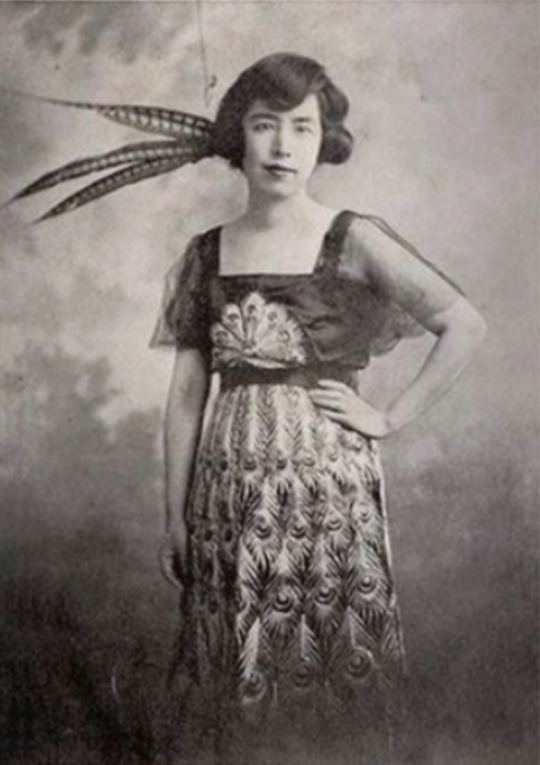
Lü Bicheng(呂碧城)also known as Alice Pichen Lee(1883–1943) was a Chinese writer, activist, newspaper editor, poet and school founder. She has been mentioned as one of the top four women in literature from the early Republic of China.
When she was four, her father retired to Lu'an, Anhui. She lived a life of comfort until the age of 12, when her father died in 1895. Because Lü Fengqi had no male heir, relatives of the Lü lineage contested for his inheritance, and Yan Shiyu and her four daughters were forced to move to Lai'an County to live with her natal family. When she was nine, Lü Bicheng was betrothed to a Wang family, but as her own family fortune declined, the Wang family broke off the marriage contract, giving the young Bicheng the stigma of a "rejected woman". The resulting emotional scar is often considered a major factor in her later decision to never marry.[8] Her widowed mother and the Lü girls were not well treated at the Yan family in rural Anhui. When Lü was 15 or 16, Yan Shiyu sent her to live with her maternal uncle Yan Langxuan (嚴朗軒), who was the salt administrator in Tanggu, the port city outside the northern metropolis of Tianjin. Her sister Huiru also joined her later.
During her stay in Tanggu, Qing China went through the tumultuous period of the failed Hundred Days' Reform of 1898, which brought about increasing awareness of women's education, and the Boxer Rebellion of 1900. In 1904, Mrs. Fang, the wife of her uncle's secretary, invited Lü Bicheng to visit a girls' school in Tianjin, but her uncle prevented her from going and severely reprimanded her. The next day, she ran away from her uncle's home, and took the train to Tianjin with no money or luggage. She wrote a letter to Mrs. Fang, who was staying at the dormitory of the Ta Kung Pao newspaper. Ying Lianzhi, the Catholic Manchu nobleman who founded the newspaper, read the letter and was so impressed by it that he made her an assistant editor. Lü Bicheng wrote a "progressive" ci that she had previously written, set to "A River Full of Red" ("Manjianghong") usually used to express heroic emotions. Ying transcribed the whole song in her diary and published it in L'impartial two days later. At the time, it was sensational for a woman to write for an influential national newspaper such as Ta Kung Pao. She was 21 years old. She used Ta Kung Pao to promote feminism and became a well-known figure.
Lü's ci poetry was published in the newspaper and it was very well received. She was the chief editor of the newspaper from 1904 to 1908. In 1904 she decided to improve education for girls. She had published her thoughts on women's rights and the general editor of the newspaper introduced her to Yan Fu who was an advocate for Western ideas. The Beiyang Women's Normal School was established that same year. At 23 Lü took on the job of principal of the school she had founded two years before. At first this school found it difficult to find girls who qualified for secondary education and students were brought in from Shanghai to make up the numbers.
Lü knew the revolutionary Qiu Jin and they had similar objectives but Lü did not join her in Japan when she was invited as she was unsure whether women should meddle in politics. She was then chosen to be secretary to Yuan Shikai, one of the most powerful people in China. When he set out to declare himself emperor of China she left, like many of his followers, and abandoned him.
--

Qiu Jin (秋瑾)8 November 1875 – 15 July 1907,was a Chinese revolutionary, feminist, and writer.Her sobriquet name is Jianhu Nüxia (Chinese: 鑑湖女俠 lit. 'Woman Knight of Mirror Lake').
Qiu was born into a wealthy family. Her grandfather worked in the Xiamen city government and was responsible for the city's defense. Zhejiang province was famous for female education, and Qiu Jin had support from her family when she was young to pursue her educational interests. Her father, Qiu Shounan, was a government official and her mother came from a distinguished literati-official family. Qiu Jin's wealthy and educated background, along with her early exposure to political ideologies were key factors in her transformation to becoming a female pioneer for the woman's liberation movement and the republican revolution in China.
In the early 1900s, Japan had started to experience western influences earlier than China. As to not fall behind, the Qing government sent many elites to learn from the Japanese. Qiu Jin was one of these elites that got the chance to study overseas. After studying in a women's school in Japan, Qiu returned to China to participate in a variety of revolutionary activities; and through her involvement with these activities, it became clear how Qiu wanted others to perceive her. Qiu called herself 'Female Knight-Errant of Jian Lake' — the role of the knight-errant, established in the Han dynasty, was a prototypically male figure known for swordsmanship, bravery, faithfulness, and self-sacrifice — and 'Vying for Heroism'
Qiu Jin had her feet bound and began writing poetry at an early age. With the support from her family, Qiu Jin also learned how to ride a horse, use a sword, and drink wine—activities that usually only men were permitted to learn at the time.In 1896 Qiu Jin got married. At the time she was only 21, which was considered late for a woman of that time. Qiu Jin's father arranged her marriage to Wang Tingchun, the youngest son of a wealthy merchant in Hunan province. Qiu Jin did not get along well with her husband, as her husband only cared about enjoying himself.While in an unhappy marriage, Qiu came into contact with new ideas. The failure of her marriage affected her decisions later on, including choosing to study in Japan.
While still in Tokyo, Qiu single-handedly edited a journal, Vernacular Journal (Baihua Bao). A number of issues were published using vernacular Chinese as a medium of revolutionary propaganda. In one issue, Qiu wrote A Respectful Proclamation to China's 200 Million Women Comrades, a manifesto within which she lamented the problems caused by bound feet and oppressive marriages. Having suffered from both ordeals herself, Qiu explained her experience in the manifesto and received an overwhelmingly sympathetic response from her readers. Also outlined in the manifesto was Qiu's belief that a better future for women lay under a Western-type government instead of the Qing government that was in power at the time. She joined forces with her cousin Xu Xilin and together they worked to unite many secret revolutionary societies to work together for the overthrow of the Qing dynasty.
Between 1905 and 1907, Qiu Jin was also writing a novel called Stones of the Jingwei Bird in traditional ballad form, a type of literature often composed by women for women audiences. The novel describes the relationship between five wealthy women who decide to flee their families and the arranged marriages awaiting them in order to study and join revolutionary activities in Tokyo. Titles for the later uncompleted chapters suggest that the women will go on to talk about “education, manufacturing, military activities, speechmaking, and direct political action, eventually overthrowing the Qing dynasty and establishing a republic” — all of which were subject matters that Qiu either participated in or advocated for.
Life after returning to China
Qiu Jin was known as an eloquent orator who spoke out for women's rights, such as the freedom to marry, freedom of education, and abolishment of the practice of foot binding. In 1906 she founded China Women's News (Zhongguo nü bao), a radical women's journal with another female poet, Xu Zihua in Shanghai. They published only two issues before it was closed by the authorities. In 1907, she became head of the Datong school in Shaoxing, ostensibly a school for sport teachers, but really intended for the military training of revolutionaries[citation needed]. While teaching in Datong school, she kept secret connection with local underground organization—The Restoration Society. This organization aimed to overthrow the Manchu government and restore Chinese rule.
Death
In 1907, Xu Xilin, Qiu’s friend and the Datong school’s co-founder was executed for attempting to assassinate his Manchu superior. In the same year, the authorities arrested Qiu at the school for girls where she was the principal. She was tortured but refused to admit her involvement in the plot. Instead the authorities used her own writings as incrimination against her and, a few days later, she was publicly beheaded in her home village, Shanyin, at the age of 31. Her last written words, her death poem, uses the literal meaning of her name, Autumn Gem, to lament of the failed revolution that she would never see take place:
秋風秋雨愁煞人 (Autumn wind, autumn rain — they make one die of sorrow)
After Qiu Jin was killed, no one dared to collect her body. Lu Bicheng endured her grief and took great risks to bury her friend. The guarding Qing army learned that the woman who came to collect the corpse was Lu Bicheng, who was famous in China, and they had no choice but to do anything.
Qiu Jin's death caused Lu Bicheng to lose a rare confidant in life. She wrote many poems in memory of Qiu Jin, recalling this like-minded friend.
Later, Lü Bicheng wrote "The Biography of the Revolutionary Heroine Qiu Jin" in English, which was published in newspapers in New York, Chicago and other places in the United States. It caused a great response and not only made many people in the world know about Qiu Jin's legendary story, but also published it in newspapers in New York and Chicago. It also makes people understand the darkness and corrupt social status quo of the Qing Dynasty. Lu Bicheng used a pen of her own to record her friendship with Qiu Jin, and also fulfilled her promise to Qiu Jin to respond with the "battle of words"
————————
📸Video & 🧚🏻 Model:@荷里寒 & @阿时Ashi_
🔗Weibo:https://weibo.com/3618951560/NEZZnpQRq
————————
#chinese hanfu#china history#woman power#woman in history#hanfu#hanfu accessories#hanfu_challenge#chinese traditional clothing#china#chinese#han dynasty#tang dynasty#late qing dynasty#feminism#revolution#漢服#汉服#中華風#girl power#hanfu girl
393 notes
·
View notes
Text
Wu Shuqing and the revolutionary women's troops

Revolutionary women fighting at Nanjing
In 1911, revolutionaries in southern China rose up against the Manchu-led Qing Dynasty. Their successful uprising brought an end to the imperial system and ushered in the early republican era. Moved by both patriotism and feminist ideals, women joined the movement.
Wu Shuqing’s women’s troop
Wu Shuqing, a 19-year-old student from Hanyang, was one of these women. Alongside two others, she wrote to revolutionary leader Li Yuanhong, asking for permission to fight. He initially refused, arguing that integrating women into an all-male army would be too difficult.
But Wu Shuqing didn’t back down. She responded by asserting that there was no difference between men and women when it came to fighting a revolution:
“Were they to hear that the nation was conscripting troops, farmers would lay down their hoes and laborers would abandon their tools. In high spirit they would go off and become soldiers. Even teachers and students in school would all have to become troops. The people are the starting point for society, and society is the point at which the state begins. The people are thus of major importance in terms of victory and defeat of the state. If we do not now come to the aid of the great Han people and wipe out the Manchu bastards, we will assuredly earn the slander of foreigners. In the north sits powerful Russia and majestic Great Britain. Our country faces great dangers on that front. I seek no instant glory. I merely want to join the troops in fighting northward, giving my life in pursuit of the enemy, killing the Manchus. Only then will our Han race be avenged.”
Wu Shuqing’s request was granted, and a women’s troop was formed.
The women’s troop at the front
The exact number of women who joined is unclear, with reports suggesting several hundred. They underwent military training before being sent to the front lines.
Wu Shuqing led them into combat. She participated in a campaign against the Qing at Hankou. During the battle for Nanjing, she and her troops devised a plan to occupy the fort at Shizishan, opening a path for the revolutionary army.
Many women’s forces and organizations were formed in quick succession, though not all of them saw battle.
The sisters Yin Weijun and Yin Ruizhi became famous for their skill in bomb-making and explosives. They earned respect during the battles against the Qing for their daring bombing raids.
Though Yin Ruizhi was wounded, her sister went on to create another unit, the Zhejiang Women’s Nationalist Army, leading them into battle. Over 30 women from this unit fought to liberate Nanjing. They attacked three forts, occupied Yuhatai, scaled ladders over the city walls, and entered Nanjing on December 2. Eyewitnesses praised their bravery and combat effectiveness. However, the troop was later disbanded as the commander-in-chief did not believe women could handle a long-term expedition.

The Yin sisters in military attire.
A third women’s troop also participated in the battle for Nanjing, providing first-aid and logistical support.
A fourth women’s unit, the Guandong Women’s Northern Expedition Bombing Team, was led by Xu Mulan. A hundred female soldiers fought at Xu Zhou.
Though women made up only a small fraction of the revolutionary forces, they played a vital role in the overall movement. For some, their military involvement became a way to express their political ideals and ensure the possibility of an egalitarian society in the future republic. Some of these women also became outspoken advocates for women’s suffrage.
Aftermath
Most women’s armies were discharged in 1912 after a compromise was reached between the revolutionaries and the northern forces. Many female soldiers were left frustrated, feeling that their contributions were undervalued, especially as all positions in the provisional government were given to men.
Wu Shuqing’s whereabouts after the revolution remain unknown.
Here is the link to my Ko-Fi. Your support would be much appreciated!
Further reading:
Edwards Louise, Gender, Politics, and Democracy: Women's Suffrage in China
Ono Kazuko, Chinese Women in a Century of Revolution, 1850-1950
Li Xiaolin, Women in the Chinese Military
#history#women in history#wu shuqing#women's history#china#chineses revolution#chinese history#asian history#warrior women#female soldiers#20th century#Yin Weijun#Yin Ruizhi#Xu Mulan#historyblr
88 notes
·
View notes
Text
#i put the most popular ones here for obvious reasons#i love learning about what wars people are obsessed with#i feel like it says a lot and it's cute to know#world war 1#world war 2#wwi#wwii#american revolution#american civil war#civil war#napoleon bonaparte#wars of the roses#the tudors#trojan war#chinese history#alexander hamilton#crusades#fuck the confederacy#house of lancaster#house of york#richard iii#french revolution#oliver cromwell#troy#all quiet on the western front#military history#history nerd#napoleonic wars#henry tudor#history
60 notes
·
View notes
Text
Deities, Figures, And Spirits of Rebellion, Revolutions, and Resistance.

While Tensions are High and emotions flood the body and mind, I like to think back to time and how history has birthed incredible and magnificent people throughout its unforgiving march forwards. And I think of those figures and people or those gods and stories, and I remind myself of their presence and how they shook the time and the eras that they occupied. I’m in love with them. And I admire them. Whether they are trickster Spirits that stand against Authority and embrace strength against adversity or fighting against authority and resisting the status quo, I often admire and think of them. I think of them fondly and I nod to them through Space and Time, and by thinking of them, I carry them in my heart. And I am motivated by their Light and the Inspiration that they have brought across the ages. I know that they are *there*. Eons apart from me or in spaces and spirit that I cannot grasp anywhere but within my very spirit. They are there. And I am holding them in my spirit and heart and they are holding me. And I move with their spirit and their awareness. And I nod to them. And they, to me. I wanted to provide a large list of Figures, Saints, Gods or other individuals and Beings commonly venerated, worked with or worshiped as icons of resistance and overcoming trying times. History is steeped in trials and circumstances where the oppressed and hunted have overcome great adversity or stood against the tides that seek to bring harm unto them. Here, I will list figures that you can draw upon or look to in your hours of need. If you seek a Revolutionary, you may find one Here. (feel welcome to add some as this crosses your path!)
Some Saints:
St. Michael the Archangel – Known as the chief warrior angel, St. Michael is often invoked for protection and strength in battles and against evil.
St. Joan of Arc – The French saint who led her country in battles against English forces during the Hundred Years' War. She’s celebrated for her courage and conviction against overwhelming odds.
St. Jude Thaddeus – Known as the patron saint of lost causes, people turn to him in desperate situations for help in overcoming challenges that seem impossible.
St. Sebastian – Often depicted as a martyr who survived multiple executions, he became a symbol of strength, resilience, and steadfastness in the face of persecution.
St. George – Known for slaying a dragon, St. George is a symbol of overcoming evil and oppression. Often associated with courage in adversity.

Deities:
Sekhmet (Egyptian Mythology) – The lion-headed goddess of war and healing, Sekhmet is revered for her fierce power and for defending the oppressed.
Morrigan (Celtic Mythology) – The Celtic goddess of battle and sovereignty, Morrigan embodies both the power to protect and to incite change. She is often seen as a guardian of the land, appearing before battles to inspire or instill fear in the enemy.
Kali (Hinduism) – Goddess of destruction and rebirth, Kali represents the destruction of evil and is often invoked for overcoming difficult circumstances and for protection against oppressive forces.
Oya (Yoruba/Orisha Tradition) – Goddess of winds, storms, and transformation, Oya is a fierce warrior who stands up against oppression and is often turned to for protection and resilience. Ogun (Yoruba/Orisha Tradition) – The god of iron, war, and labor, Ogun is a force for justice and is often invoked in situations requiring resilience and the strength to overcome oppression. He’s seen as a revolutionary spirit for those seeking to break free from their constraints. Eshu (Yoruba/Orisha Tradition) – Known as the divine messenger and trickster, Eshu brings both disruption and opportunity. As a god of crossroads, he’s associated with challenging authority and initiating change, reminding followers that revolution often begins with unexpected choices. Yemaya (Yoruba/Orisha Tradition) – The mother of all life and goddess of the sea, Yemaya is often associated with resilience, protection, and the healing of generational trauma. As a nurturing and revolutionary spirit, she is frequently invoked for personal and collective strength. Queen Nanny of the Maroons (Jamaican Folklore) – A legendary figure and spirit in Afro-Caribbean culture, Queen Nanny was a leader of the Maroons who resisted British colonial forces. She’s honored as a warrior and symbol of independence and strength.
Huitzilopochtli (Aztec Mythology) – The god of war and the sun, Huitzilopochtli led the Aztecs through harsh conditions to establish their empire. He symbolizes endurance, perseverance, and overcoming obstacles.
Inanna/Ishtar (Mesopotamian Mythology) – Goddess of love, war, and justice, she descends into the underworld and returns, representing survival through dark times and resistance against forces of oppression.
Manjushri (मञ्जुश्री) (Buddhist Bodhisattva) - Manjushri is venerated across the Buddhist world as an embodiment of wisdom, with devotees seeking his guidance to develop the courage and insight necessary to face personal and societal challenges. Manjushri holds a flaming sword that symbolizes the cutting of ignorance and illusion, a powerful symbol of spiritual revolution and awakening. He represents the transformative power of wisdom and the courage to overcome ignorance, delusion, and societal conventions, which align with themes of inner revolution.
Susanoo (建速須佐之男命) (Japanese Shinto) – The god of storms and the sea, Susanoo is known for his rebellious nature against the heavenly order, and he’s often venerated for his unyielding spirit. He’s remembered for protecting people by slaying a great serpent, representing courage and the ability to challenge authority.
Amaterasu (天照大御神 / 天照大神) (Japanese Shinto) – Though primarily known as the goddess of the sun and order, Amaterasu withdrew from the world when her brother acted destructively, only returning when lured back by others. Her story reflects the themes of resilience and the power to restore light and hope.
Guan Yu (关羽) (Chinese) – A legendary general deified as a god of war and protection, Guan Yu is known for his loyalty, bravery, and sense of justice. He’s widely worshipped as a guardian figure who defends the oppressed and inspires people to uphold righteousness and loyalty.
Nezha (哪吒) (Chinese) – A child warrior deity known for his rebellious spirit, Nezha is celebrated for resisting oppression, particularly against tyrannical figures in the heavens. He represents youth, resilience, and defiance against unjust authority, often empowering those who feel marginalized or oppressed.
Xiwangmu (西王母) (Chinese) – Also known as the Queen Mother of the West, Xiwangmu is a powerful goddess associated with healing, protection, and transformation. While not a revolutionary in the typical sense, she embodies resilience, independence, and the power of women in a traditionally male-dominated pantheon.
Zhong Kui (钟馗) (Chinese) – Known as the demon slayer, Zhong Kui is a spirit of justice who fights against evil spirits and brings protection to those who feel haunted by oppression. He is venerated as a deity who can help people overcome fears and defeat obstacles that seem insurmountable.
The Eight Immortals (八仙) (Chinese) – A group of legendary Taoist figures, each with unique powers, who often challenged the social order. Figures like Lü Dongbin and Zhang Guolao used their abilities to help people and protect them from corrupt rulers and evil forces, embodying the spirit of defiance against oppressive systems.
Sun Wukong (孙悟空) (Chinese) - The central figure in the 16th century novel “Journey to the West (西游记) but also a figure in Mythology, Sun Wukong stands against authority and inspires both resistance and strength as well as dynamic growth.

Demons:
Lord Lucifer - The Adversary and Illuminator. Lucifer is a longstanding figure of bearing the light in the darkness and fighting against overwhelming oppression and control of powers that deem themselves tyrants. Lucifer fights and battles against forces that subjugate the oppressed.
Lord Asmodeus – Known in demonology as a figure representing strength, ambition, and power, Asmodeus is sometimes invoked for resilience, drive, and confidence to overcome personal and external challenges.
King Belial – Often associated with independence and personal power, Belial is sometimes venerated for helping people stand strong in their own beliefs and against unjust authorities.
Mother Lilith – A figure of independence and resistance, Lilith is revered in some traditions as a symbol of feminine power and autonomy, especially in standing against oppression and patriarchal structures.
Lord Buer – Demon of healing and knowledge, called upon for mental strength and overcoming illness or hardship through wisdom and resilience. Promotes mental health and healing as well as encourages growth through overcoming your mental blockages.
Lord Leviathan - The Lord of Shadow Working. Lord Leviathan helps you navigate the deep and dark waters of your mind where you may feel overwhelmed and drowning. Lord Leviathan can bring you clear waters and help support you when the tides feel like they may pull you down.

Secular Saints & Venerated Figures, Other Folkloric figures and Revolutionaries:
Harriet Tubman – Though not formally canonized, Harriet Tubman is often seen as a symbol of liberation and resilience, escaping slavery and leading others to freedom.
Malcolm X – An icon of strength, self-determination, and resistance, especially in the context of racial oppression. His life inspires resilience and the fight for justice.
Hypatia of Alexandria – Known for her wisdom and intellectual resilience, Hypatia became a symbol of strength and survival in a time when powerful figures often sought to silence knowledge.
Nelson Mandela – Revered globally for his resilience and role in overcoming apartheid, Mandela is a secular saint for many, representing strength and the spirit of resistance.
Frida Kahlo – Known for her resilience through physical and emotional pain, Kahlo’s life and work are often venerated as symbols of strength, personal power, and survival against all odds. Cuauhtémoc (Aztec/Mexica Tradition) – The last Aztec emperor who resisted the Spanish conquistadors. He is remembered as a hero who fought courageously to protect his people, embodying resilience and the spirit of resistance in Mexican culture.
Emiliano Zapata (Mexican Folk Hero) – Though not a deity, Zapata’s revolutionary spirit against oppressive forces has made him almost a legendary figure in Mexican folklore. He’s revered as a folk saint and a symbol of the fight for social justice and indigenous rights.
Hua Mulan (Chinese Folklore) – Celebrated for her bravery and willingness to challenge gender norms, Mulan fought in her father’s place in the army. Her story is a symbol of courage, resilience, and overcoming social constraints.
Kumari (Nepalese Tradition) – Known as the living goddess of Nepal, the Kumari is believed to embody divine power and protection for the people. She serves as a symbol of resilience and cultural endurance in the face of modernization and outside influence.
Zumbi dos Palmares (Afro-Brazilian Tradition) – A leader of a community of escaped slaves (Quilombo dos Palmares) in Brazil, Zumbi is honored as a hero and symbol of freedom, resistance, and African heritage in Brazil.
Yue Fei (岳飞) – A historical general from the Song Dynasty who became a symbol of loyalty, patriotism, and resistance against foreign invaders. Despite betrayal and wrongful execution, Yue Fei is venerated as a hero who embodies loyalty to one’s people and the fight against oppression.
Li Shimin (Emperor Taizong of Tang, 唐太宗 李世民) – Known for his role in overthrowing the corrupt Sui Dynasty, Li Shimin played a crucial role in establishing the Tang Dynasty. He is respected as a revolutionary leader who brought stability and cultural prosperity to China.
Chen Sheng and Wu Guang (陈胜, 吴广) – These two commoners led one of the first rebellions against the Qin Dynasty’s harsh rule, sparking what would eventually become a larger revolt. They are remembered as symbols of the common people’s resistance against an oppressive regime.
The White Lotus Goddess (白莲教) – Associated with the White Lotus Society, this goddess represents spiritual resistance against corruption and oppression. The White Lotus sect played a significant role in several uprisings throughout Chinese history, including revolts against the Mongol Yuan Dynasty.
Chi You (蚩尤) – A figure from ancient mythology, Chi You was a tribal leader who fought against the Yellow Emperor. He is often depicted as a warlike figure who stood against established order. Though he was ultimately defeated, he became a symbol of rebellion and bravery in later cultural narratives.
Lü Zu (吕祖) – One of the Eight Immortals, Lü Dongbin (or Lü Zu) was known for challenging both heaven and earth, and he often sided with the poor and downtrodden. He encouraged people to resist worldly corruption, especially among the rich and powerful, inspiring resilience and self-cultivation.
Madame Zheng Yi Sao (郑一嫂) – Often called the Pirate Queen, she was one of the most powerful pirate leaders in history and led a massive fleet that defied the Chinese imperial government. Madame Zheng embodies resistance against oppressive authorities and is celebrated for her intelligence and revolutionary spirit.
#witchcraft#witchblr#devotional post#gods and deities#deity work#revolution#saints#secular saints#gods#goddesses#paganism#folklore#god worship#polytheism#deity worship#paganblr#current events#demons#demonic workings#demonolatry#chinese mythology#polytheist#shintoism#saint veneration
67 notes
·
View notes
Text
Are You The One very spoilery drama review
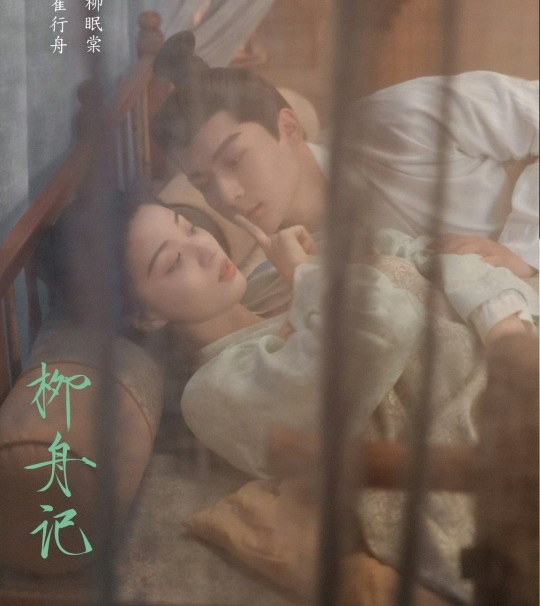
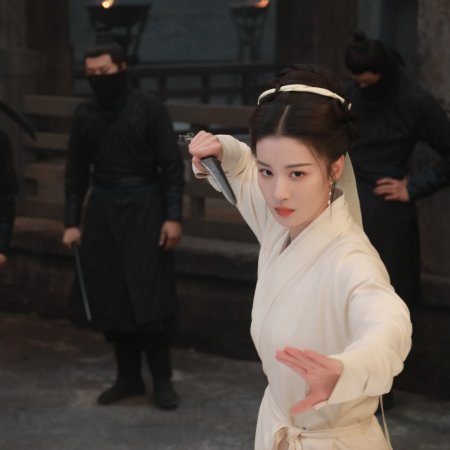
"Do you remember the archenemy I mentioned? ...Three years ago I played against (him). I lost that time. It was my first defeat in life. Strangely, I didn't feel sorrowful. Instead, I felt a kind of joy in meeting a worthy opponent. Since then, I've played against (him) several times. We're almost even. Each game is a battle of wits and courage, thrilling and intense. Rather than seeing him as an arch enemy, I consider him a close friend. I enjoy each game against (him). As long as he's my rival, the result doesn't matter."
Imagine you're a protagonist making THAT speech about his nemesis... then encountering said nemesis with injuries & amnesia, presuming this person is actually your nemesis's lover (because rumors/secret identity/sexism), and fake marrying them as a pretense to draw out and capture..... the person who is now your fake wife that you're falling in love with! Cause you were half in love with your nemesis already lmao. 🤡🤡🤡
Welcome to the set up of Are You The One, a costume drama romance with situational comedy and a dark under belly (as both ML and FL are ruthless schemers with blood on their hands).
The circumstances are inherently hilarious and the comedy revolves around the Shakespearean absurdity of the situation the characters find themselves in. This tends to be my preferred style of humor, in comparision to the comedy stylings of pratfalls, pranks, and goofy insults. Anyone who read my fanfics back in the day knows that I enjoy throwing my couples into ridiculous situations and then watching them have to deal with it in all seriousness (and fall in love in the meantime.)
Per usual for me in a narrative that's primary-romance, what matters most is that A) I understand why these 2 people match each other; B) by the time we reach the end, the otp are equal partners; C) BLOOD LUST (look I just enjoy an otp who will both stab an enemy in the gut, it is very sexy of them ok? ok)
Things that make me rabid about this drama:
At first he doesn't even register how beautiful she is, while canonically people are staring at her in the street, she's so lovely. This is because he is so fixated on this rival that he admires, who he has been battling for 3 years, that he only registers her as a pawn in their game
Very romantic & sexy to me that his connection & attraction to her build from him growing to understand her personality and admiring her qualities
Zhang Wanyi handles situational comedy tbh much better than I expected (having previously enjoyed him in a tragic role and then an angsty melo). Both Zhang Wanyi and Wang Churan very much embodied their characters, both the dark and light sides.
True enemies to lovers because he falls in love with all the qualities that he'd admired in his respected enemy: her decisiveness, her clever scheming, her loyalty, her meticulous nature. He is drawn to her as someone who is his equal and could be a true confidant - the same thing she sees in him.
By episode 7, he's started falling for her and the audience can see how it happened and why.
It was so good for me that when her memories secretly awaken, he senses this by observing, "Lately, I've always felt that there is someone who understands my thoughts, spies on my actions, and constantly leads me by the nose. Even if I gain something like today, it's because (he) made me this way. I haven't felt this way for a long time." / "When did you last have this feeling?" / "The last time was when I dealt with Lu Wen. Lu Wen should have returned."
We can also see why FL is falling for this person who lets her take charge and likes it, who enjoys her wits and starts backing her play.
The narrative structure is not just in medias res... It's truly atypical: we're dropped into this story 3 years in and because the perspective in the first third of the drama is the ML's, we share his narrow viewpoint and naturally presume that he's the protagonist hero of this tale, the morally grey but capable prince who is defending his province against bandits while fending off a royal court threatened by his military power.
But oops, what if it turns out that basically you're the sheriff of Nottingham and you've been battling Robinhood, who's actually your hot & brilliant fake-wife. And when you unknowingly captured Robinhood, it was too late -- she'd already been secretly supporting The Rightful King™ for years, and now she's a hero who helped the monarch rise to the thrown, and to an outsider you would be considered the dastardly scoundrel in this tale. 🤡
So IS he a villain? No, not really. He can coldly have his enemies killed and he certainly originally intended to kill FL, and then dispose of her bloodlessly, and then... (ANYWAY, yeah bro is Going Thru It™)
But everything he does is within the rights & privileges of his role, as ruler of the province and subject only to the emperor/empress dowager.
A man accostomed to wealth & power who was jaded and obviously just going thru the motions, fulfilling his responsibilities and resigned to being suspected by a weak ruler & conniving court, marrying a cousin who just wants his title, and protecting his borders out of duty. Until 3 years ago, when he starts battling against bandit leader Lu Wen. Now he's awake, he's excited, he has news to look forward to.
It's hilarious how he doesn't even see it in the initial episodes, the way he's accidentally moved that person in and now he's having to constantly maneuver around this person's decisive actions, and it's invigorating him. It's emotionally and mentally stimulating.
And then it's flipped where FL now has to come to the realization that life is more rewarding when she has ML to plan with, more satisfying than going it alone.
As a hater of amnesia plotlines, why didn't it repel me? 1) when we meet the character, she already has the memory loss; it's a defining trait and 2) she doesn't lose her intellgence with the memory loss and become pliant and just malleable like portrayed in other dramas - what makes the first 17 episodes a cat vs mouse cat game is that even with her memories stripped away, this person who's been told she's a merchant's sickly wife is still clever, conniving, and assertive... and we even see the willingness to get ruthless & violent if needed.
She's understandably infuriated & resentful upon regaining her memories -- such a proud & capable & independant person with big plans just manipulated for a year, tricked into giving care and affection to her enemy. But when she dismisses ML's now sincere feelings as, "What he wants to marry is not me, but the canary he has raised." ....the script has provided substantial evidence that in actuality he has a total complex about his mysterious nemesis; the real her inside, that couldn't be erased, is what he has always liked.
And then he gets the chance to prove it and finally openly express that to her.
After 17 episodes of her under the thumb of manipulation, the drama provides another 15 or so where she is in control of her own life and given the agency to decide if they could work, and she waits to be certain that ML doesn't want the canary in a cage after all. 👌 👌
I just very much appreciate dramas that show instead of tell, and earn the relationship. Convince me! The screenwriter shows their work not just on the main ship and secondary ships, but also the friendship between FL and the He merchant daughter. (The way they shift her from 'love rival' to empathizing w each other and actual friends was great - lol reminds me of Qin Zhenzhen from Princess Royal; sorry not sorry, my love rival actually likes me best now 😜)
Also also the emperor and empress slow burn ship in the 2nd arc of the drama was good stuff, I quite liked them.
Also also ALSO the main otp get 20+ minutes devoted to their (real) wedding in the final episodes. We get a proposal, marriage certificate signing, and one of the longest wedding ceremonies I've seen in a cdrama. Giving the people what they want!
#drama recommendation#drama review#silvia watches#cdrama#chinese drama#are you the one#sorry in advance for the person i am about to become#i have been holding off on reblogs for this drama until i could write my review#also also can u believe they got a successful rebellion past the censors#by literally just NOT SHOWING it#black screen with text: this revolution was not televised#brb loling forever
66 notes
·
View notes
Text
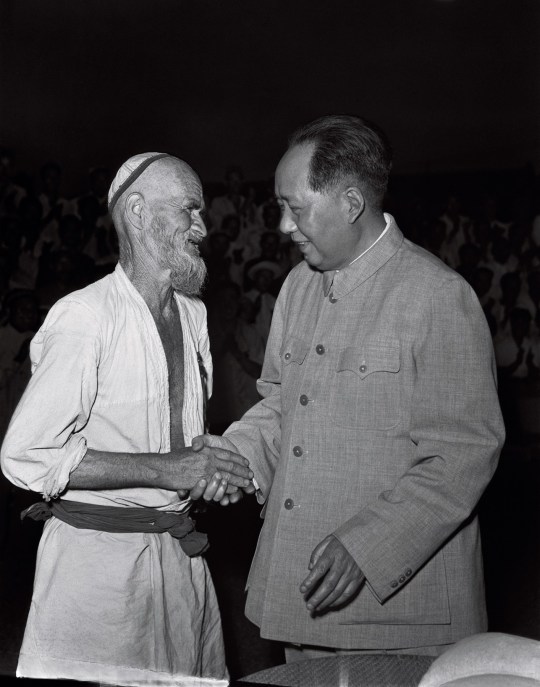
Kurban Tulum (قۇربان تۇلۇم) (1883-1975) an Uyghur peasant who worked as a seasonal labourer for Uyghur landlords. During the land reforms of 1952, Kurban received land and various other properties. He is said to have visited Ürümqi, the capital of Xinjiang, by riding a donkey, to show his appreciation for the People's Liberation Army.
The People's Republic of China promotes him as a symbol of unity between the Uyghurs and Han Chinese. A song named "Where Are You Going, Uncle Kurban?" (库尔班大叔您去哪儿?) and a film titled Uncle Kurban Visits Beijing (库尔班大叔上北京) were produced in 2002. Monuments of Kurban's handshake with Mao stand in the town centres of Keriya and Hotan (Tuanjie Square).
#Chinese#Mao Zedong#China propaganda#Communist#Marxist leninist#Communism#Socialist#Marxism#China#中国#Uyghur#History#Uighur#Beijing#Türk#Cultural Revolution
147 notes
·
View notes
Text
Season 11 of Revolutions is a history of the 2247 Martian Revolution, complete with fictional bibliography and historiography, and I am so here for it.
#someone still needs to give the Chinese Revolution the Mike Duncan treatment#or maybe I just need to find a good audiobook
42 notes
·
View notes
Text
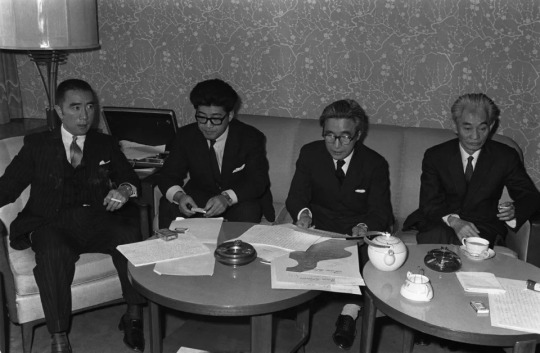
Writers Yukio Mishima, Kobo Abe, Jun Ishikawa, and Yasunari Kawabata reading the statement "Regarding the Cultural Revolution in China, it is imperative to preserve the self-discipline of learning and art" at a press conference. Photographed at the Hotel Imperial, Chiyoda-ku, Tokyo, 28 February 1967.
#yukio mishima#kobo abe#Yasunari Kawabata#Jun Ishikawa#三島由紀夫#安部公房#川端康成#石川淳#cultural revolution#chinese cultural revolution#1967
116 notes
·
View notes
Note
what exactly does marxism-leninism-maoism add to marxism-leninism? i know part of it is the theory of protracted peoples war but honestly that seems like it would only work in countries with larger rural areas. this isn't me trying to disprove you or anything i just don't think i understand maoism. (i've also heard mixed opinions on abimael guzman from some people so i'm curious about him too)
That is a great question! The advancements of Maoism can be split into two main categories. The first category is the qualitative advancements with build on the core of Marxism, and mark the transformation of Marxism-Leninism into Marxism-Leninism-Maoism. The second is the advances which advance Maoism itself, but do not propel revolutionary science into a qualitatively higher stage.
In terms of the first category, three main advancements were made which qualitatively advanced the knowledge of revolutionary science along the lines of the three essential aspects of Marxism. These were made during the 3rd world historic revolution, that being the Chinese Revolution, up till the end of the Great Proletarian Cultural Revolution. These are;
Advancements in the field of Political Economy: Chairman Mao Zedung was the first to seriously advance the study of imperialism beyond the great discoveries of Lenin and analyze Imperialism in it's modern Semi-Colonial form. This investigation led to the discovery of Bureaucrat-Comprador Capitalism and Semi-Feudalism, the ruling classes within Semi-Colonies.
Advancements in the field of Class Struggle 1: Following the analysis of Bureaucrat-Comprador Capitalism and Semi-Feudalism, along with analysis of both the RUssian and Chinese Revolution's, Mao discovered a crucial revolutionary stage for all countries under the boot of feudalism and imperialism, that of the New Democratic Revolution. The NDR is a national revolution against Feudalism and Imperialism headed principally by the Proletariat, in alliance with all progressive classes of society, including the national bourgeoises (For example the CPC-Kuomintang united fount against the Japanese, or the united front against the Tzar in Russia) The NDR must be completed before socialist revolution can occur.
Advancements in the field of Class Struggle 2: Another Key advancement of Mao was the discovery that, contrary to popular opinion at the time, class struggle continues under socialism. Under socialism new bureaucratic bourgeoisie emerge from within the party and state structure (following the principle of one dividing into two) and from remaining inequalities in society (following the principle of unequal development). Following the defeat of soviet socialism buy such forces and the rise of Khrushchevite Revisionism, and even the rise of such Revisionism in the CPC, Mao and the socialist line in the party waged a struggle against Khrushchtevite Revisionism and later internal revolution, culminating with the Great Proletarian Cultural Revolution. The GPCR targeted both old feudal and capitalist structures as well as the new bourgeoisie who promoted the capitalist line in the party, and pushed the development of socialism to its farthest point so far (which is why it the 3rd world historic revolution).
Advancements in the field of Dialectical Materialism: Mao's book On Contradictions is edental reading for any serious communist, it contains Mao's contribution to the philosophical foundations of Marxism. It puts forward key concepts such as the relationship between antagonistic and non antagonistic contradiction, differentiates between principle and secondary contractions, and the universality and particularity of contractions. Mao also puts forward in other works how contractions should be handled. Contradictions amongst the people vs contradictions with ractionares, and importantly contractions between the masses and the party, which is solved with the mass line.
There is also the topic of People's War, however that is a topic I personally do not know enough about yet in order to speak on it with any authority. After all, no investigation, no right to speak.
#marxism leninism maoism#marxism leninism#marxism#maoism#communism#socialism#chinese revolution#russian revolution#great proletarian cultural revelation#GPCR#cultural revolution
19 notes
·
View notes
Text
In 1757 the [East India Company] took part in the Battle of Plassey and gained control of Bengal. At first this led to the simple looting of the province, as the EIC extracted “gifts” and “tribute” from local elites. But as the Industrial Revolution got underway, English capitalists developed their textile industry. So, the EIC systematically destroyed the Indian cotton economy, drove farmers out of cotton production, and shut down spinning and weaving operations. British industry bought cotton grown on slave plantations in the southern United States. As India was eliminated as a competitor, the mills of the English Midlands flourished.
- Ken Hammond, Chapter 1 of "China's Revolution and the Quest for a Socialist Future"
#colonialism#bengal#cotton production#india#industrial revolution#1700s#history#the previous cotton farmers were encouraged to grow opium poppies and then the drug was sold to china.#also note that opium was illegal in china.#the british are the OG drug lords and cartels.#when the chinese tried to stop the smuggling of drugs in their country#the drug lords asked the british government for help and parliament decided to declare war on china.
25 notes
·
View notes
Text
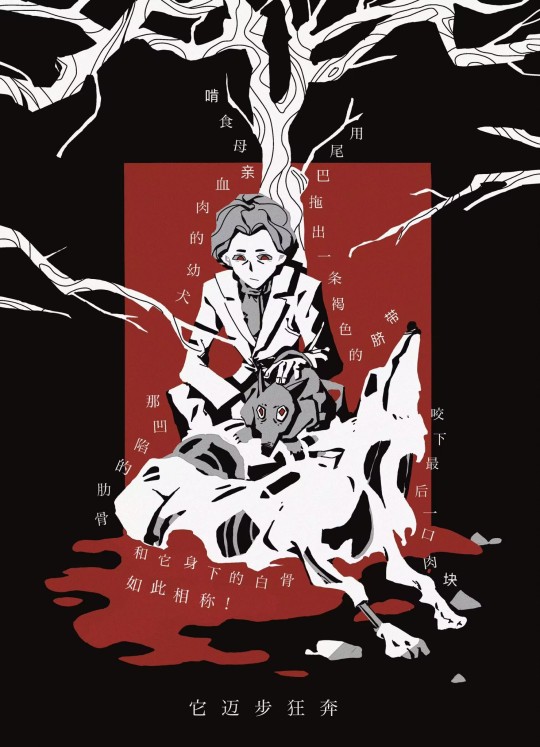

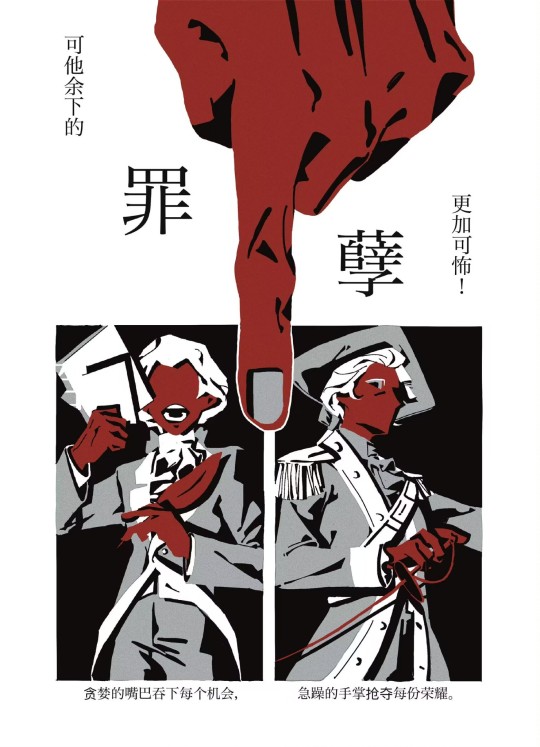



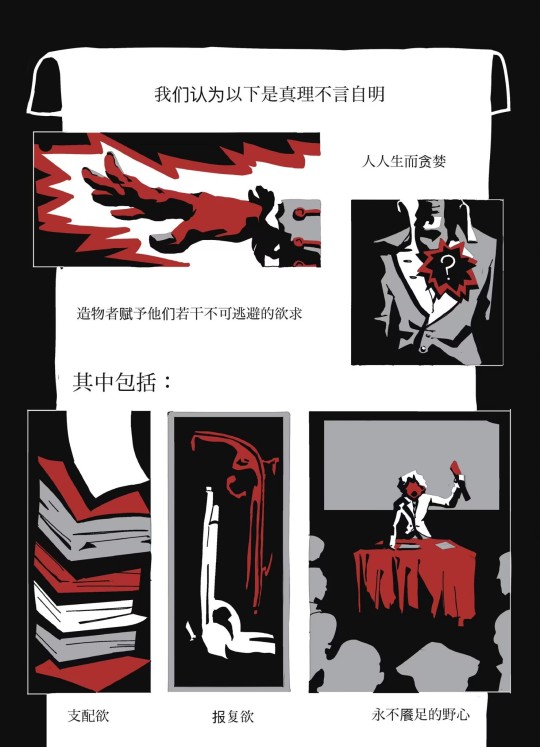
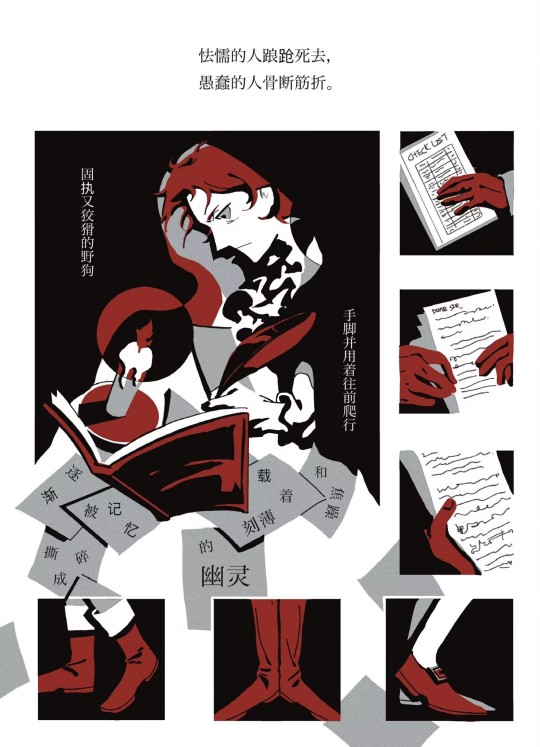
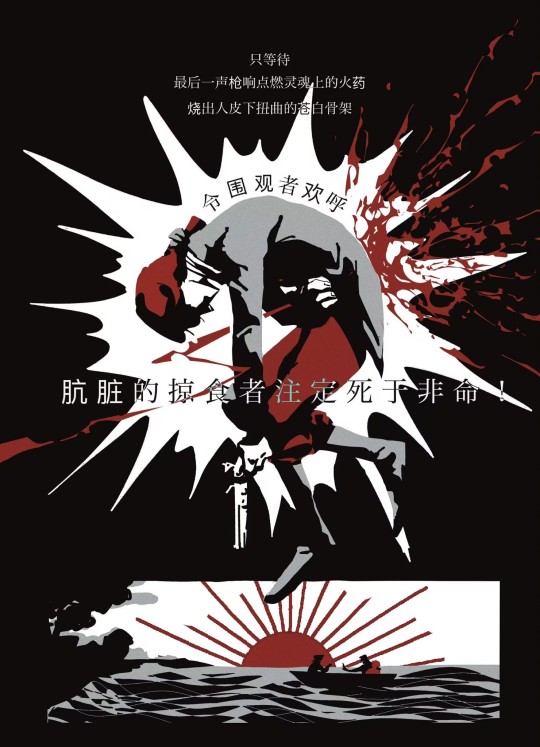
Basicaly a short story that reveals my understanding of AHam.
I am so in love with his high sensitivity and low empathy. This whole deal of not trusting crowds makes him partially out from the human society. I love the feeling SOOOO MUUUUUUUCH
And maybe because I was putting in so much genuine emotion, creating this artwork was a blast! I hope this little story manages to pass on some of my feelings to anyone how read!
Here is the full poem I wrote in chinese:
《一只掠食者如何死去》
啃食母亲血肉的幼犬。
用尾巴拖出一条褐色的脐带,
那凹陷的肋骨
和他身下的白骨
如此相称!
咬下最后一口肉块,
它迈步狂奔。
凄厉的狂吠是亲人的丧钟,
脆弱的脚带它走向新的路。
可怜可悲的怪诞生物,
妄图扭成人形?
可他余下罪孽更加可��!
贪婪的嘴巴吞下每个机会,
急躁的手掌抢夺每份荣耀。
幼犬长成冷血的狼,
却仍然学不会
从奔跑中停歇。
在这时竟吐出人言:
——神圣的天使!
你傲慢的耳
或许听说过
沉默的绵羊
如何任人践踏。
你高贵的眼
或许阅读过
狡猾的老鼠
如何自甘堕落。
你广阔的学识
或许见证过
懦弱的兔子
如何困死病榻。
你苍白的脸上可曾溅上鲜红的血?
从缪斯停留的古典画框里,
自潘神藏身的大理石像中,
我们尊贵的诗人显出真身,
隔着玻璃怜悯无声病逝的宠物,
却厌恶再去多看出逃的猛兽一眼。
虚假的伪君子,冠冕堂皇的大人。
你何必再为注定被遗忘的人铺床?
死亡本是
我们每晚的归宿,
在漫长的奔波中
让不体面的争抢和讥讽
充满天堂。
我们认为以下是真理不言自明
人人生而贪婪,
造物者赋予他们若干不可逃避的欲求,
其中包括:
支配欲
报复欲
永不餍足的野心
怯懦的人跌倒死去,
愚蠢的人骨断筋折。
固执又狡猾的野狗手脚并用着往前爬行,
逐渐被记忆撕碎成载着刻薄和焦躁的幽灵。
只等待
最后一声枪响点燃灵魂上的火药,
烧出人皮下扭曲的苍白骨架,
令围观者欢呼
肮脏的掠食者注定死于非命!
#Sorry it's in Chinese#I am to lazy to translate a poem#maybe I will post a eng version later#you can google translate it on your own#american revolution#amrev fandom#historical alexander hamilton#alexander hamilton
201 notes
·
View notes